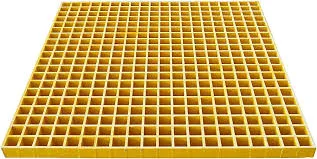
-
 Afrikaans
Afrikaans -
 Albanian
Albanian -
 Amharic
Amharic -
 Arabic
Arabic -
 Armenian
Armenian -
 Azerbaijani
Azerbaijani -
 Basque
Basque -
 Belarusian
Belarusian -
 Bengali
Bengali -
 Bosnian
Bosnian -
 Bulgarian
Bulgarian -
 Catalan
Catalan -
 Cebuano
Cebuano -
 China
China -
 China (Taiwan)
China (Taiwan) -
 Corsican
Corsican -
 Croatian
Croatian -
 Czech
Czech -
 Danish
Danish -
 Dutch
Dutch -
 English
English -
 Esperanto
Esperanto -
 Estonian
Estonian -
 Finnish
Finnish -
 French
French -
 Frisian
Frisian -
 Galician
Galician -
 Georgian
Georgian -
 German
German -
 Greek
Greek -
 Gujarati
Gujarati -
 Haitian Creole
Haitian Creole -
 hausa
hausa -
 hawaiian
hawaiian -
 Hebrew
Hebrew -
 Hindi
Hindi -
 Miao
Miao -
 Hungarian
Hungarian -
 Icelandic
Icelandic -
 igbo
igbo -
 Indonesian
Indonesian -
 irish
irish -
 Italian
Italian -
 Japanese
Japanese -
 Javanese
Javanese -
 Kannada
Kannada -
 kazakh
kazakh -
 Khmer
Khmer -
 Rwandese
Rwandese -
 Korean
Korean -
 Kurdish
Kurdish -
 Kyrgyz
Kyrgyz -
 Lao
Lao -
 Latin
Latin -
 Latvian
Latvian -
 Lithuanian
Lithuanian -
 Luxembourgish
Luxembourgish -
 Macedonian
Macedonian -
 Malgashi
Malgashi -
 Malay
Malay -
 Malayalam
Malayalam -
 Maltese
Maltese -
 Maori
Maori -
 Marathi
Marathi -
 Mongolian
Mongolian -
 Myanmar
Myanmar -
 Nepali
Nepali -
 Norwegian
Norwegian -
 Norwegian
Norwegian -
 Occitan
Occitan -
 Pashto
Pashto -
 Persian
Persian -
 Polish
Polish -
 Portuguese
Portuguese -
 Punjabi
Punjabi -
 Romanian
Romanian -
 Russian
Russian -
 Samoan
Samoan -
 Scottish Gaelic
Scottish Gaelic -
 Serbian
Serbian -
 Sesotho
Sesotho -
 Shona
Shona -
 Sindhi
Sindhi -
 Sinhala
Sinhala -
 Slovak
Slovak -
 Slovenian
Slovenian -
 Somali
Somali -
 Spanish
Spanish -
 Sundanese
Sundanese -
 Swahili
Swahili -
 Swedish
Swedish -
 Tagalog
Tagalog -
 Tajik
Tajik -
 Tamil
Tamil -
 Tatar
Tatar -
 Telugu
Telugu -
 Thai
Thai -
 Turkish
Turkish -
 Turkmen
Turkmen -
 Ukrainian
Ukrainian -
 Urdu
Urdu -
 Uighur
Uighur -
 Uzbek
Uzbek -
 Vietnamese
Vietnamese -
 Welsh
Welsh -
 Bantu
Bantu -
 Yiddish
Yiddish -
 Yoruba
Yoruba -
 Zulu
Zulu
High-Quality FRP Pipes and Fittings for Shipbuilding
FRP Pipes and Fittings for Shipbuilding
In the maritime industry, the reliability and durability of materials used in shipbuilding are paramount. Among the various materials utilized, Fiber Reinforced Polymer (FRP) pipes and fittings have gained significant attention due to their superior properties compared to traditional materials like steel and PVC. FRP composites are designed to withstand harsh marine environments, making them an ideal choice for various applications, including drainage systems, cooling systems, and fuel lines in vessels.
FRP Pipes and Fittings for Shipbuilding
Another notable benefit is the lightweight nature of FRP pipes. They are significantly lighter than their metal counterparts, which contributes to reduced overall weight in ship construction. This weight reduction can enhance fuel efficiency and overall performance, permitting vessels to carry more cargo or traverse greater distances without increased fuel consumption. Additionally, lighter materials facilitate easier handling and installation during the shipbuilding process, further streamlining operations.
frp pipes and fittings for ship building

The strength-to-weight ratio of FRP is another compelling aspect. These materials combine strength and durability while maintaining a lightweight profile, which is essential for modern shipbuilding practices that prioritize efficiency and performance. Moreover, the flexibility in design allows for the production of custom shapes and sizes, catering to specific needs and configurations of various ship systems.
FRP pipes and fittings also provide thermal insulation, which can be advantageous in specific applications, such as cooling or heating systems aboard ships. This insulation helps maintain desired temperatures within piping systems, optimizing the performance of onboard equipment and enhancing energy efficiency.
As environmental concerns continue to rise, the use of FRP materials has also been recognized for their lower environmental impact. They can be manufactured with recyclable materials, and once their lifecycle is complete, they can be disposed of more sustainably compared to traditional materials.
In conclusion, the integration of FRP pipes and fittings in shipbuilding presents numerous advantages, including corrosion resistance, lightweight, superior strength, design flexibility, thermal insulation, and environmental sustainability. As the maritime industry evolves, embracing modern materials like FRP is essential for advancing efficiency, safety, and sustainability in ship design and construction.
Latest news
-
High-Quality Fiberglass Car Bodies Durable GRP Car & Boat Body SolutionsNewsJul.08,2025
-
High-Quality Fiberglass Dual Lamination Product Manufacturer Durable FRP & GRP Dual Lamination SolutionsNewsJul.08,2025
-
Rectangular Tank with Dimensions for GRP Calculation Custom Fiberglass GRP Rectangular TanksNewsJul.07,2025
-
High-Quality Fiberglass Weir Custom FRP Weir & Fiberglass Tanks ManufacturerNewsJul.07,2025
-
CPVC FRP Pipe A Reliable Choice for Industrial Applications High Strength & Corrosion ResistanceNewsJul.07,2025
-
Fiberglass Scrubber for Effective Cleaning and Stain Removal – Superior Performance in Various ApplicationsNewsJul.06,2025









